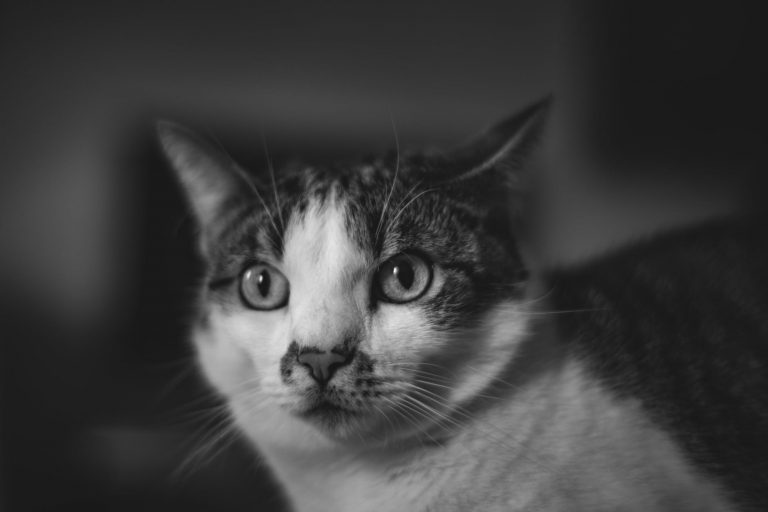Top 8 Reasons Why do Cats Scratch The Side of the Litter Box
There might be many reasons why do cats scratch the side of the litter box. Since I got Feliciano, he has been scratching the sides of his litter box, but only after he poops.
I thought maybe it’s to clean his paws. But is that the real reason? I found a couple possible culprits.
- Why do Cats Scratch The Side of the Litter Box
- Is it normal for my cat to scratch the walls of the litter box?
- Could my cat’s scratching of the litter box walls be a sign of a medical issue?
- Is there anything I can do to stop my cat from scratching the walls of the litter box?
- Could my cat’s scratching of the litter box walls be a behavioral issue?
- What should I do if my cat is scratching the walls of the litter box?
- What To Do When Your Cat Is Scratching The Sides Of The Litter Box Excessively?
- Can you discourage cats from playing in the litter box?
- Why Do Cats Scratch To Bury Waste?
- How often should you change cat litter?
- What are the consequences of a cat scratching the walls of their litter box?
Why do Cats Scratch The Side of the Litter Box
If you’re wondering why does my cat scratch the litter box walls, then we have some answers you need. Here are 8 reasons for this behaviour.
1. Instincts
Cats by nature are clean animals who have this natural instinct to always cover up their poop. Make sure to provide plenty of litter for your furball and in turn, prevent them from scrapping waste off the sides.
Try different litters to find out which one your cat loves the most.
- Cats are supposed to cover up their poop using litter.
- Making sure there is plenty of litter in the box can help prevent your cat from scraping more waste off the sides.
- There is a range of litter boxes that help to reduce the amount of mess created by cats and it’s possible your cat will prefer one over another.
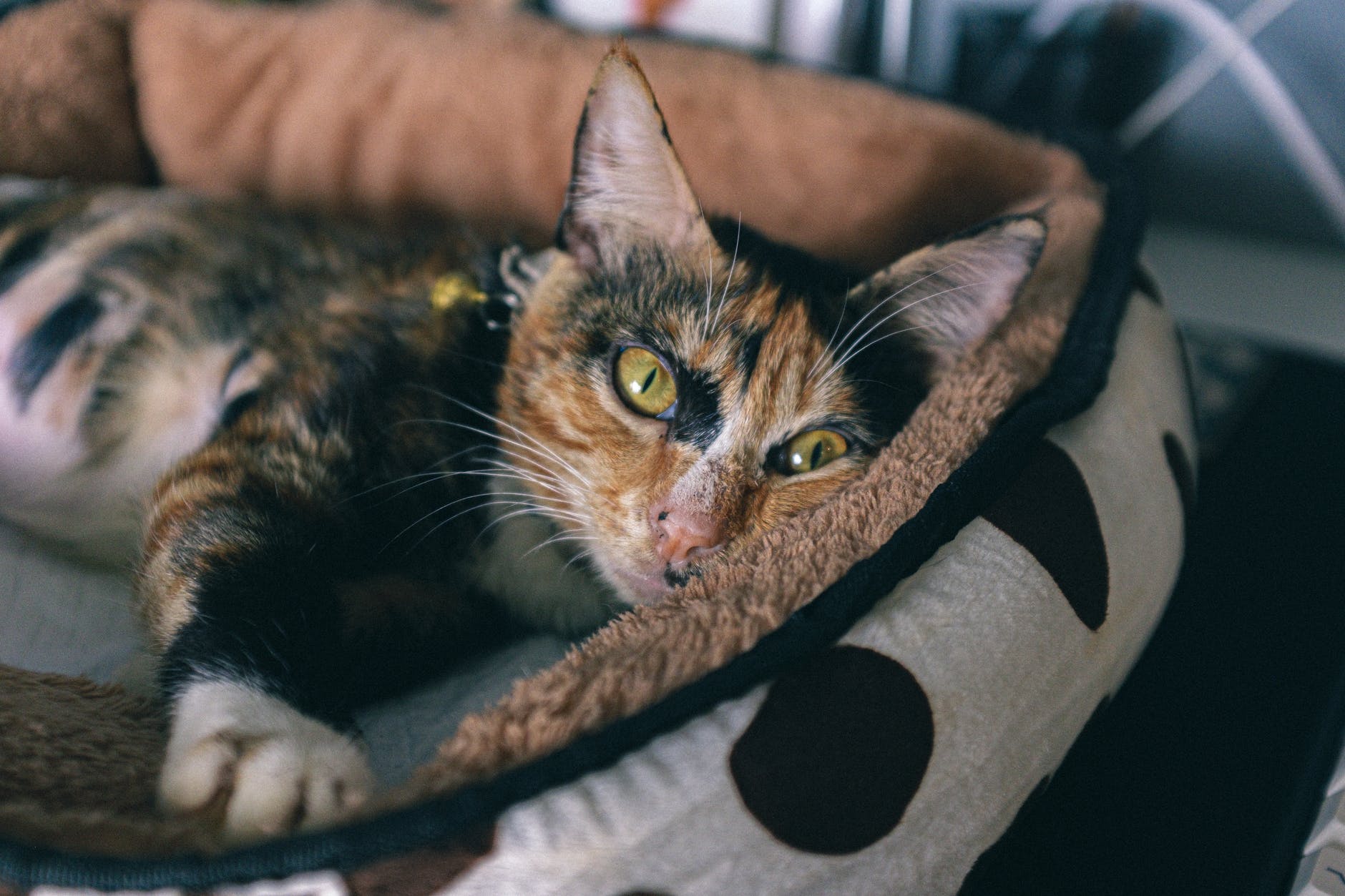
2. Play
Kittens love to play and will sometimes take their games to the litterbox. From time to time, you might find your kitty scratching their litter box excessively.
As they age, the cats will eventually outgrow this habit. However, some mature cats find it difficult to stop this behavior.
As this is not expected behavior in adult cats, you can provide toys to distract them and keep them from playing with the litter box.
However, if the mature cat is scratching excessively, it might be a sign of a mental condition. Have your furball examined by a qualified vet to rule out this option.
3. Litterbox issues
Litter box problems are among the major reasons why cats scratch their litter boxes.
Your fury bestie may be displeased with how dirty the litterbox is. In response, they may end up over-scratching the litterbox as they try to find a clean space.
Additionally, your cat may be uncomfortable with the type of litter you’re using making it claw away more than normal.
Litterbox issues can easily be addressed by:
a) Scooping every day to prevent the litterbox from getting too dirty.
b) Replace litter box. The box should be at least 3 inches deep.
c) Make sure each cat has its own litterbox.
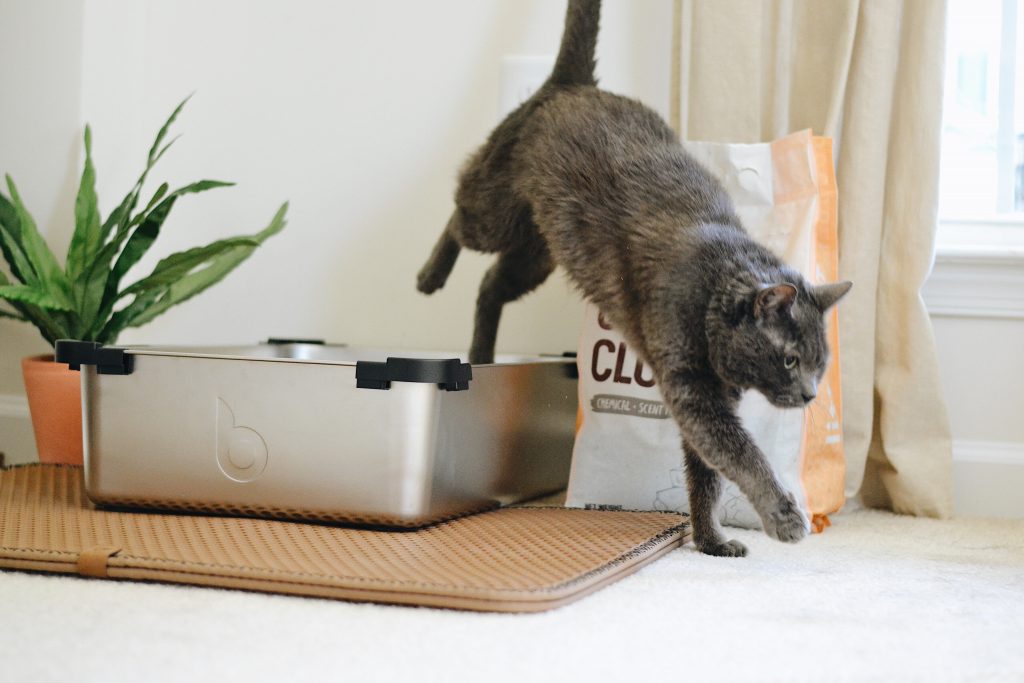
4. Paw maintenance
Cats maintain their paws by scratching on rough surfaces. Your kitty may prefer scratching the litter box as it contains its scent. This can be too stimulating for them and they may be unable to resist the urge.
Clumping litter type sometimes gets stuck on cat’s paws as they scratch. This makes it quite uncomfortable for the cat, making them scratch even more.
Make sure to provide your furry bestie with enough scratching posts where they can sharpen their claws without being destructive.
Related post: Should I declaw my cat? Everything you need to know before deciding.
5. Territory
Sometimes the excessive scratching may be a territorial behavior by your furry friend. This is mostly experienced when more than one cat uses a litterbox.
Did you know cats mark territory using their poop, pee, and scratching around?
This territorial problem can easily be resolved by adding the number of litterboxes.
Make sure the ratio is one litter box per cat. Additionally, provide an extra box to minimize the territory marking.
6. Small Litter Box
If your cat is scratching the sides of the litter box, it might be because the box is too small.
Cats need plenty of space to move around and scratch in the litter box, so make sure you get a larger one if your current one is cramped.
Additionally, cats scratch to play and mark their territory, so make sure you have enough space for them to roam freely in their new litter box.
7. Covered litter boxes
One possible reason your cat scratches the litter box sides is because of the noise inside an enclosed litter box.
The best solution for this is to relocate the box, or get rid of the cover and leave it open so that your cat has some privacy from outside disturbances.
Cats also need litter boxes to hide from other cats or when they are stressed out.
Litter boxes should be on each level of the house and positioned in secluded areas for ventilation, where there is good airflow.
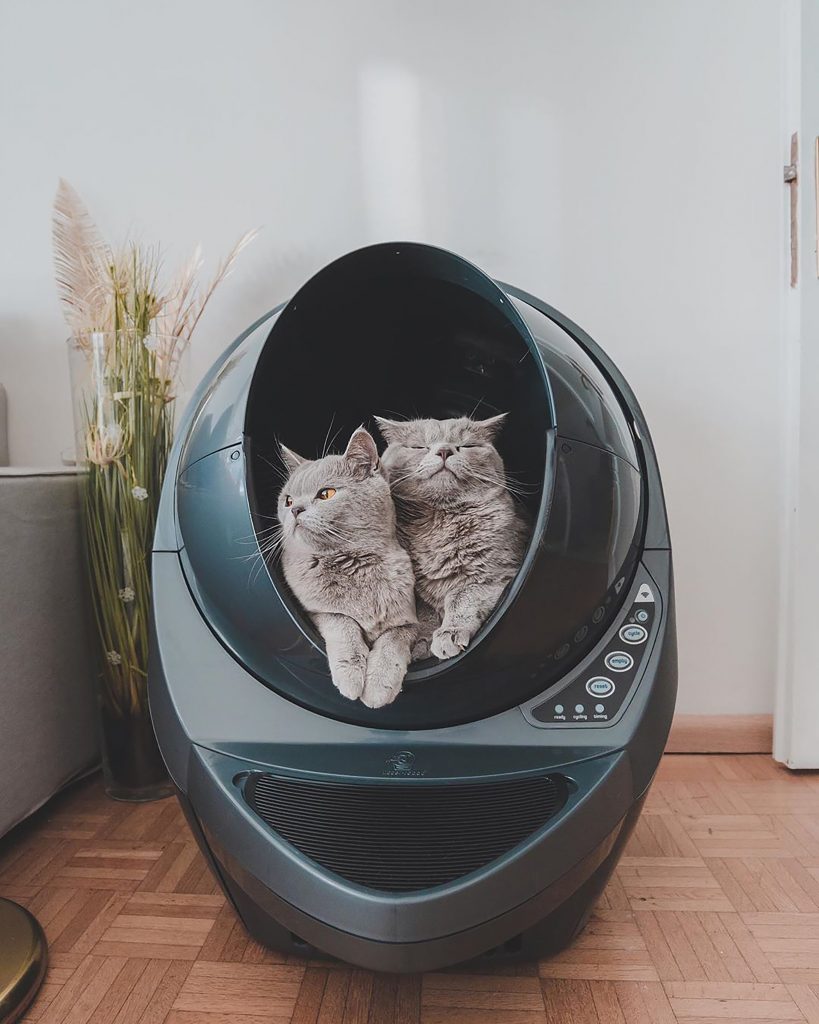
8. Smelly Poop
Cats are very clean animals and they hate bad smells. One of the ways they cover up an unpleasant scent is by scratching the sides of the litter box.
The main reason for soft stool and smelly poop is that your cat’s food is too soft.
If you’re feeding your cat wet food, try switching to dry food. You can also add a little bit of fiber to his diet, such as canned pumpkin or bran flakes.
Is it normal for my cat to scratch the walls of the litter box?
Yes, scratching litter box walls is a common behavior in cats. Unless done excessively, it should not worry you.
There are many reasons why your cat may scratch the walls of the litter box, some of which have physical and behavioral causes that can be solved with remedies such as scoops and clean liners.
If you’ve tried everything else and your cat is still scratching the walls, it might indicate a health problem, so take them to see a vet for an examination.
Could my cat’s scratching of the litter box walls be a sign of a medical issue?
If your cat is excessively scratching the litter box, it could be a sign of an underlying medical issue. Your fury bestie could be having some mental issues.
It is best to consult a qualified vet before you run to any conclusions.
Is there anything I can do to stop my cat from scratching the walls of the litter box?
There are a number of things that you can do to stop this behavior including:
a) Cleaning the litterbox.
Some cats will scratch the litter box in an attempt to find a clean area. Make sure to scoop at least once a day if not twice.
b) Provide enough litter.
The most common way of dealing with this issue is by providing plenty of litter.
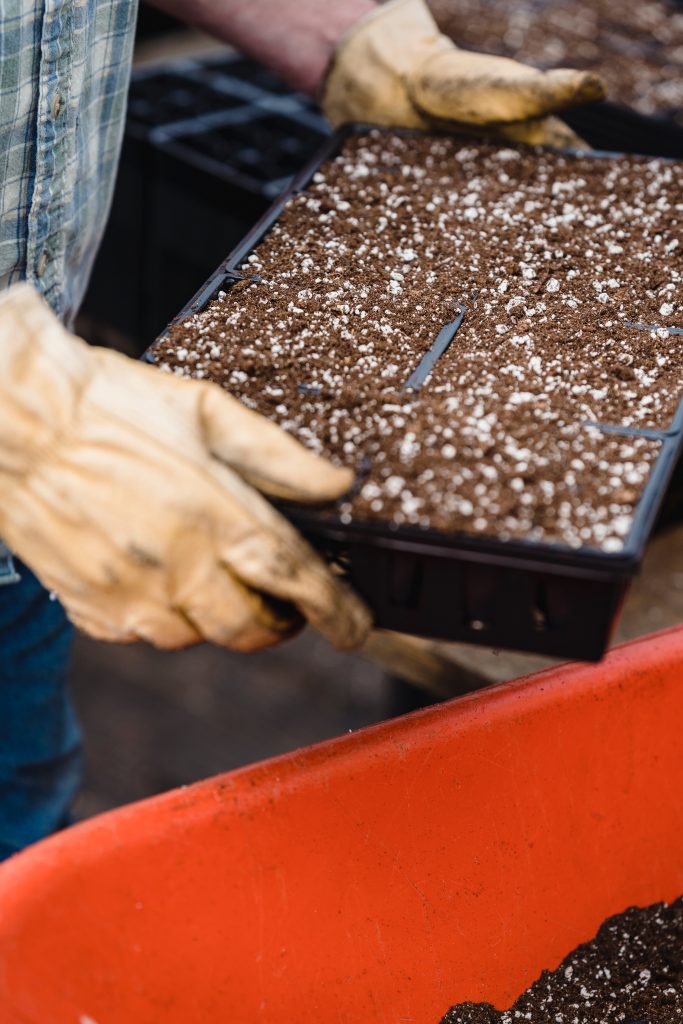
c) Avail plenty of litterboxes.
Households with many cats experience more fights over the litterbox. This is because some cats don’t like sharing and will try to mark the litterbox as their own.
To deal with this, provide enough litterboxes for everyone. For example, if you have 3 cats, provide 4 litterboxes for them.
d) Visit the vet
Your cat could be having a medical condition. It is important to first consult a vet so you can rule out anything.
Could my cat’s scratching of the litter box walls be a behavioral issue?
Yes, cats will often scratch their litter box walls due to behavioral issues. Your cat could be trying to clean up their own waste or they are sick of the scent coming from the litter box.
Read on for more information about why cats scratch walls and floors when they feel frustrated or out of place in a new location.
Spotting a potential behavioral issue with your cat is easy if you know its behaviors.
Additionally, t’s important to be aware of the behavior so you can take steps such as adding a new litter box, or decreasing the scratching surface area by blocking off areas with newspaper or cardboard.
What should I do if my cat is scratching the walls of the litter box?
Make sure your cat has a litter box that is made with a tough liner. Some cats like to dig and scratch, so buy an option that is specifically manufactured for these kinds of cats.
Additionally, provide enough litter boxes in case one gets destroyed by the cat.
Here are some tips to help you out:
- Make sure you have enough litter boxes in case one gets destroyed by the cat
- Cats need to scratch, so it’s OK to buy them special scratching posts.
- It’s not realistic to try to stop your cat from scratching
- The goal of resolving scratching problems is to redirect the scratching.
- The best way to prevent your cat from scratching: put their favorite object in the litter box.
- Make sure your litter box has a liner.
- Make sure the liner is tough and can withstand claws, such as those of cats who love to dig and scratch.
- Some liners are specifically designed for cats that like to dig and scratch, making them more difficult for your cat to destroy by pawing or scratching at them repeatedly.
- The “scratch-proof” label on some litter boxes refers specifically to the difficulty in destroying these liners with pouncing or scratching
What To Do When Your Cat Is Scratching The Sides Of The Litter Box Excessively?
Litter Box Etiquette
Cats, just like people, need a private space to use the litterbox. There are possible issues with the state of the toilet that may cause your cat to scratch excessively.
Felines prefer to be in a low stress environment before they can poop.
Consequently, you should make sure the litter box is in a secluded area preferably a room that is rarely occupied. This helps to not disturb your furbaby’s sense of privacy and security.
Additionally, provide the appropriate litterbox size. The size of the box is dependent on your cat’s age and health.
A small space can make your cat go crazy scratching the walls. Accessibility and size are the main players in achieving personal space and comfort for your cat.
You can make sure you are using the appropriate amount of litter by checking the brand’s instructions and how much they recommend.
If you use a clay or wood pellet type of litter, it will reduce noise for your feline friend and make it easier for them to access their business. This also reduces odor.
A clay or wood pellet reduces noise and makes it easy for the furbabies to continue with their business. Additionally, it also helps with the odor.
Read on for more information about why cats scratch walls and floors when they feel frustrated or out of place in a new location.
Many people choose to use an outdoor kitty litter bin because they are durable and offer isolation from unwanted scents when using the toilet in peace.
The RSPCA recommends that there should be one litter box per cat, and in some cases, a spare may be more beneficial.
Taking Your Cat To The Vet
Cats communicate in different ways and scratching is one of them. A vet check-up is recommended if excessive scratching has occurred recently or your cat has trouble using its litter box.
A diagnosis can help rule out that your cat does not have a urinary tract disease like FLUTD.
The symptoms of this type of condition are often seen in middle-aged overweight cats that get a little exercise, use indoor litter boxes, and have limited outdoor access.
Cats with arthritis or mobility issues will also suffer discomfort while using the litter box and consequently scratching excessively.
Additionally, the vet trip will help determine if the kitty is in distress. Stress can often be caused by a lack of attention, diet change, or the adoption of another pet.
Constipation could result from any of these issues or a cat’s intense efforts to cover up its waste.
Can you discourage cats from playing in the litter box?
It’s normal for kittens to play in their litter box. They dig and scratch as a result of comfort.
However, if your cat is scratching and digging in the box as an adult, there must be a reason why.
If you’re worried about your cat playing in the litter box, you can discourage this behavior by providing plenty of toys and alternate places for them to scratch.
You can also try a covered litter box so they feel more enclosed.
However, if your cat is still scratching and digging even with all these distractions, it might be indicative of a medical issue and you should take them to the vet.
Why Do Cats Scratch To Bury Waste?
When it comes to cats and their litter box habits, there are many mysteries that remain unsolved. One such question is why do cats scratch the walls of their litter box? Some people believe that this is a way for cats to bury their waste, but this isn’t actually the case. Cats will bury their poop in order to mask their scent from predators and prey.
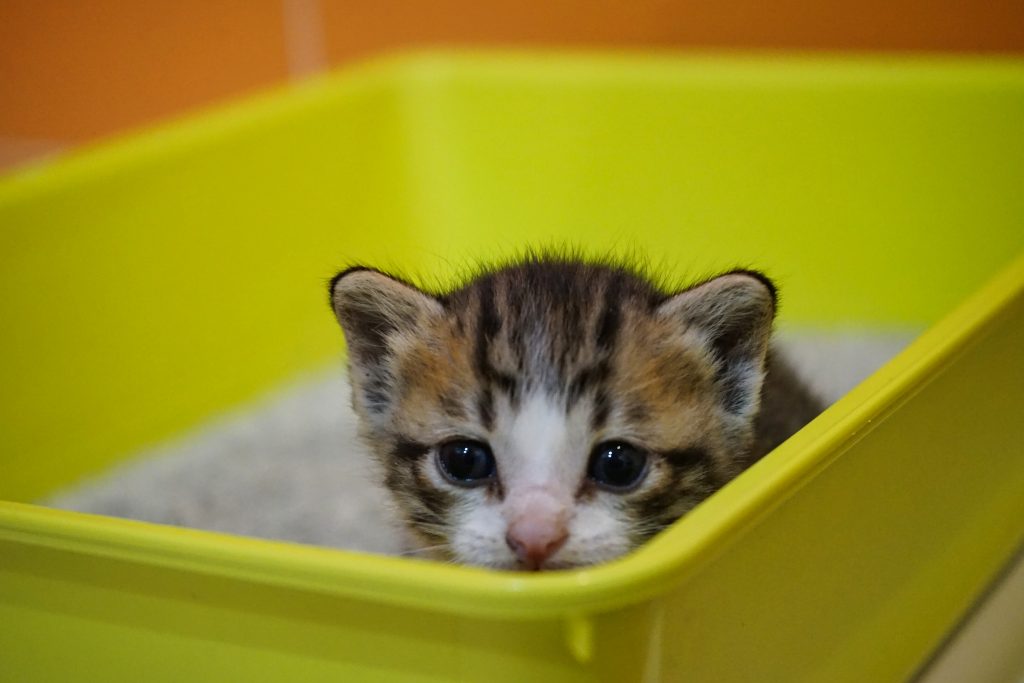
In the wild, cats must take great care in hiding themselves from potential threats. One way they do this is by burying their waste so that the potent smell doesn’t give them away.
Burying their waste also helps to avoid attracting parasites and other animals who might be interested in making a meal out of them.
Cats have also evolved to keep themselves safe through other means. They can climb trees, hide beneath shrubs, or stay concealed through scent-tracking.
So even though scratching the walls of their litter box may not actually help them bury their waste, it’s still an instinctual behavior for them that has developed over time.
How often should you change cat litter?
Twice a week is an ideal frequency for changing cat litter though the more times you change the better.
The use of clumping litter helps cut down on the amount of time it takes to change out litter. However, this comes with a caveat: make sure you’re scooping up clumps daily and washing the litter box regularly.
Cat owners should never wait until they “need an emergency change” (keep your eyes peeled!)
What are the consequences of a cat scratching the walls of their litter box?
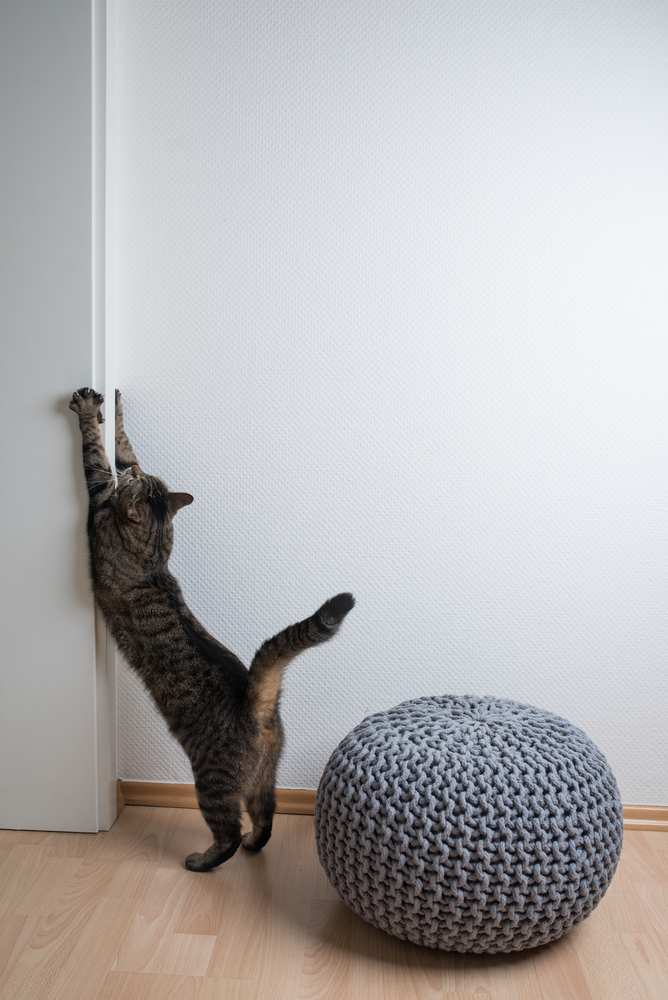
When a cat scratches the walls of its litter box, there can be a few consequences.
One is that they may wear away the outside husks of the litter box and scratch them to keep their claws in good condition.
Another consequence is that they may cause damage to their litter box by scratching on the walls. And finally, if it becomes a habit, they may start scratching other surfaces in your home as well.
To prevent your cat from causing this type of damage, you can try using a good litter box liner.
The tough liners come with handles so that you can dispose of the litter in the trash bin easily and not have to touch it.
You can also keep your cat’s nails trimmed at least every 10 days or two weeks to curb her need for scratching things.
Instead of using a new box, try cutting off the side that she is most fond of scratching on, then replace it with a fresh one and you will find her less interested in doing so on the old one.





